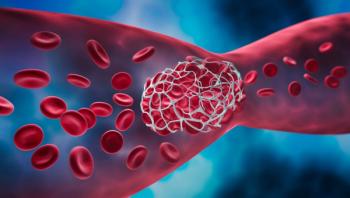
Pfizer’s Hympavzi Cuts Bleeding by 93% in Hemophilia A and B Patients with Inhibitors, Phase 3 Trial Finds
Out of the more than 800,000 people worldwide living with hemophilia, around 20% of those with hemophilia A and 3% with hemophilia B develop inhibitors, preventing their bodies from responding to standard clotting factor therapies.
Hympavzi (marstacimab) significantly reduced the annualized bleeding rate by
Pfizer recently announced positive results from the BASIS study, the global phase 3 trial evaluating Hympavzi in young adults and adults with severe hemophilia A or moderately severe to severe hemophilia B who have developed inhibitors—or antibodies that block the effects of standard factor replacement therapy.
These inhibitors make traditional treatments ineffective, leaving patients with limited and often complex care options.
Out of the more than 800,000 people worldwide living with hemophilia, around 20% of those with hemophilia A and 3% with hemophilia B develop inhibitors, preventing their bodies from responding to standard clotting factor therapies.
This can lead to uncontrolled bleeding, increased hospitalizations and greater health risks, according to Pfizer.
According to the CDC
The median age at diagnosis is 36 months for those with mild hemophilia, 8 months for those with moderate hemophilia and 1 month for those with severe hemophilia.
Additionally, in about two-thirds of cases diagnosed as babies, there is a family history of hemophilia.
Hympavzi offers a new treatment option to address the challenges of the bleeding disorder.
Compared to traditional therapies that are used during bleeding episodes and replace the missing clotting factors (Factor VIII in hemophilia A or Factor IX in hemophilia B), Hympavzi works differently.
It targets a protein in the blood called tissue factor pathway inhibitor (TFPI) and then helps restore the natural balance between bleeding and clotting.
This process allows Hympavzi to remain effective even in patients with inhibitors to factor replacement therapies.
Administered through a once-weekly subcutaneous injection, Hympavzi is designed to be easy to use, requiring minimal preparation and eliminating the need for frequent intravenous infusions—a known barrier to adherence for many patients.
The BASIS study included 48 patients with hemophilia A or B and inhibitors.
Participants received Hympavzi prophylaxis over 12 months and were compared to their outcomes during a six-month period of on-demand treatment with intravenous bypassing agents—the current standard of care for people with inhibitors.
Hympavzi showed its success in all bleeding-related outcomes, including spontaneous bleeds, joint bleeds, target joint bleeds and total bleeds.
For example, the annualized bleeding rate (ABR) dropped from 19.78 with on-demand treatment to 1.39 with Hympavzi—a 93% reduction.
This was both statistically significant and clinically meaningful.
“Patients with inhibitors tend to face frequent complications, and navigating the treatment landscape can introduce complexities and increase disease burden,” Davide Matino, M.D., BASIS principal investigator and associate professor of medicine at McMaster University, said in a news release. “The strong bleed reduction with Hympavzi compared to on-demand treatment in the phase 3 BASIS study, coupled with its weekly administration method, offers exciting potential for these patients who are in critical need of treatment options.”
Hympavzi was generally well-tolerated in the study.
No deaths or blood clotting events were reported, and the safety profile was consistent with previous study phases and the non-inhibitor cohort of the BASIS trial.
Hympavzi
For eligible people with hemophilia B, it’s also the first once-weekly subcutaneous prophylactic treatment available.
Pfizer is currently conducting additional studies, including the BASIS KIDS trial, which investigates the safety and efficacy of Hympavzi in children aged 1 to under 18 years.
Regulatory discussions are also underway to seek approval of Hympavzi for use in people with inhibitors.
As the space of hemophilia treatment continues to evolve, Hympavzi could cause a major shift—offering easier options, more consistent protection from bleeds and a new option for patients underserved by existing therapies.
Newsletter
Get the latest industry news, event updates, and more from Managed healthcare Executive.























